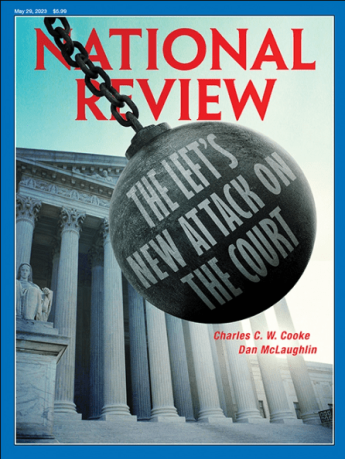In a column published in National Review (“School-Board Candidates Avoid Hard Truths for the Sake of Palatability,” 5/16), Sahar Tartak discusses recent elections in her Long Island hometown.
Though she does not specify the town, it’s clear enough to those who live here that Ms. Tartak is talking about Great Neck.
Her main contention is that “Parents should be aware of what their board of education candidates really stand for”—but Ms. Tartak misrepresents the situation here in Great Neck, presenting a distorted view of what her own preferred candidates stand for.
Some facts to consider:
Ms. Tartak suggests that a certain candidate in last year’s Board election was unfairly labeled as “a disruptive right-wing extremist.”
She is clearly referring to Emil Hakimi, who unsuccessfully ran against incumbent Donna Peirez. But “disruptive right-wing extremist” is not just a label or epithet; it is an accurate description of Mr. Hakimi, who has waged a relentless campaign of harassment and misrepresentations up to and including falsely accusing his neighbors of being pedophiles.
During his own election campaign, as well as subsequent campaigns over the last year, Mr. Hakimi has continually hurled QAnon-style smears, going so far as to label political opponents as “child pornography advocates.”
No matter what our political leanings, we should all agree that this type of poisonous rhetoric has no place in our public conversation.
Ms. Tartak’s view of this year’s election is equally skewed. She defends a candidate, Niloufar Tabari, who received some attention for her attacks on the award-winning young adult novel “If You Come Softly.”
Ms. Tabari claimed the book would teach our kids that “all white people are racist,” and Ms. Tartak apparently agrees, citing the book as an example of the district’s “racialized curriculum.”
But neither Ms. Tabari nor Ms. Tartak shows any sign of having actually read the book. Tartak doesn’t explain what about the book is supposed to be anti-white; instead of citing anything from the book itself, she merely links to an online plot summary — the equivalent of citing SparkNotes. The summary indicates that the book is a tender love story between a black boy and a Jewish girl. What in the world is anti-white about that?
Ms. Tartak is surely right about one thing, at least: it is vitally important for parents to be aware of what these candidates “really stand for.” We must keep raising awareness regarding these attacks on literature—and the scorched-earth tactics of the extreme right—and continue to elect qualified, intelligent candidates who trust educators and treat their neighbors with respect.
Danny Pitt Stoller
Great Neck

